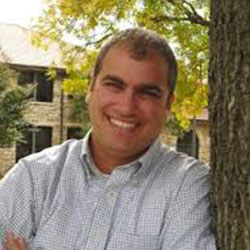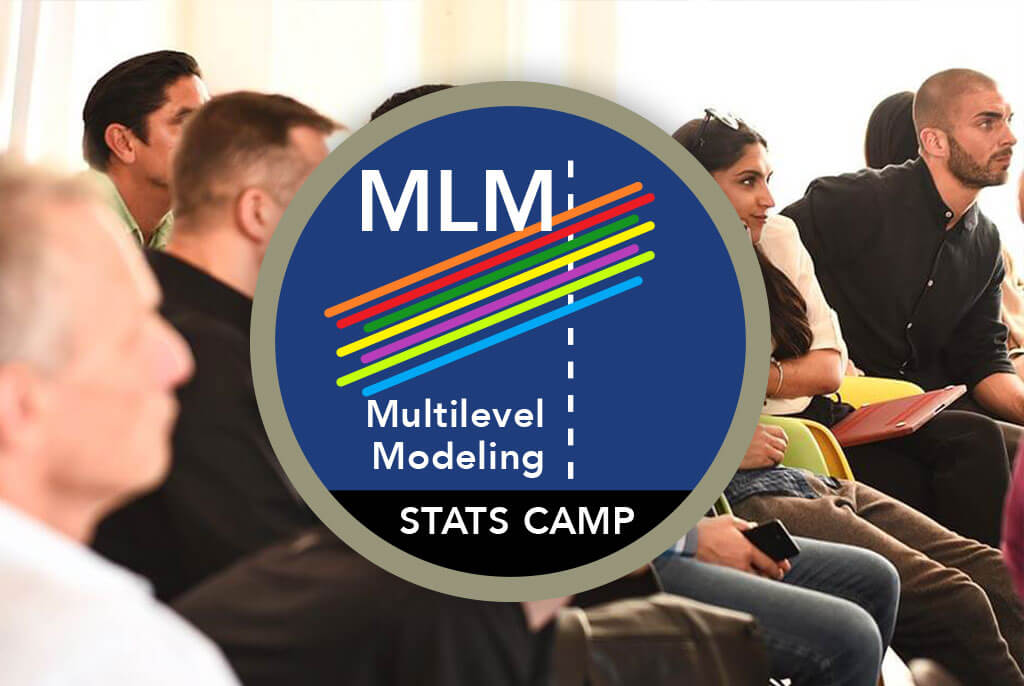IN PERSON – 5-day Multilevel Modeling Statistics Short Course
Seminar Overview:
An intermediate 5-day course introducing multilevel modeling for analyzing hierarchically organized data. Everything is nested, so you need something more than multiple regression or analysis of variance to get the job done! Nested data structures can include students within classrooms, professionals within corporations, patients within hospitals, or repeated observations from the same person. Multilevel modeling (MLM) is built to handle this kind of data. You will use real datasets and the R software environment to learn how to analyze multilevel data sets and interpret results of multilevel models.
Seminar Topics:
- Review of regression and methods of handling nested data
- Random-intercept and random-slope models
- Testing and interpreting interactions in multilevel models
- Cross-sectional and Longitudinal multilevel models
- Multilevel models for binary outcomes
- Cross-classified random effects modeling
Note: MLM is sometimes referred to as mixed-effects modeling, hierarchical linear modeling, or random coefficients modeling. This course will focus primarily on with a single outcome variable. As such, this course (https://www.statscamp.org/courin combination with a course in SEM Foundations) would provide an ideal introduction to the foundations necessary to prepare for the advanced Summer Stats Camp course, Multilevel SEM with xxM.
Seminar Description:
This course is designed to provide theoretical and applied understandings of multilevel modeling. The fundamentals of multilevel modeling are taught by extending knowledge of regression analyses to designs involving a nested data structure. Nested data structures include, for example, students within classrooms, professionals within corporations, patients within hospitals, or repeated observations from the same person. In each of these cases and many more, the data are hierarchically arranged and may require methods beyond multiple regression or analysis of variance. These methods fall under the heading of multilevel modeling, which is also sometimes referred to as mixed modeling, hierarchical linear modeling, or random coefficients modeling.
This course will help you begin to learn how to analyze multilevel data sets and interpret results of multilevel modeling analyses. Cross-sectional and longitudinal models, the most common multilevel modeling applications, are featured in the seminar. Using real datasets provided in the seminar, participants will learn how to use the R software program to analyze data and interpret results. Further, the course will emphasize proper interpretation of analysis results and illustrate procedures that can be used to specify multilevel models. Coverage of multilevel models for binary outcomes and cross-classified random effects modeling will also be included.
Participants will receive an electronic copy of all course materials, including lecture slides, practice datasets, software scripts, relevant supporting documentation, and recommended readings. Participants will also have access to a video recording of the course.
Instructor: Alex Schoemann, Ph.D.

Dr. Alexander M. Schoemann, is an Alex Schoemann, Ph.D. is Associate Professor of Psychology at East Carolina University. Alex received his PhD from the University of Kansas in 2011 in Social and Quantitative Psychology under the mentorship of Dr. Kristopher Preacher. He has been a Stats Camp instructor since 2012 … (after spending several years as a “counselor”). Alex teaches graduate courses in research design, regression, multivariate statistics, structural equation modeling and multilevel modeling. His research is focused on applying advanced quantitative methods to data from behavior sciences. Specific topics of interest include mediation and moderation, power analyses, missing data estimation, meta-analysis, structural equation models and multilevel models. Alex is also interested in developing user friendly software for advanced methods including applications for power analysis for mediation models (http://marlab.org/power_mediation/).
APA Continuing Education Credits:
This course offers 29 hours of Continuing Education Credits. Stats Camp Foundation is approved by the American Psychological Association to sponsor continuing education for psychologists. Stats Camp Foundation maintains responsibility for this program and its content.
Seminar Includes:
Materials, downloads, recorded course video viewable for up to one year.



